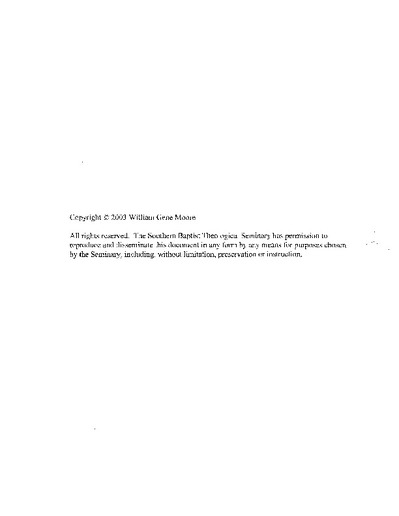| dc.description.abstract | This dissertation provides a historical and theological examination of Baptist views of the gospel ministry from English Separatists of the late sixteenth century to the Southern Baptist Convention of the mid-1920s. Chapter 1 provides the thesis of the dissertation, background material to its being written, and the methodology by which its conclusions are reached.
Chapters 2 through 4 provide overviews for the ministry among English Separatists, British Baptists of the seventeenth and eighteenth centuries, and American Baptists of the mid-seventeenth through the mid-nineteenth centuries, respectively. Each chapter focuses upon primary writings revealing each group's understanding of such issues as the office of the minister, the divine call to the ministry, ordination, preparation, the call by a congregation to a local church, and mutual responsibilities of ministers and church members.
Chapters 5 through 7 examine the ministry among Southern Baptists from about 1865 to 1925. While the fifth chapter follows the same pattern as the previous three, Chapter 6 examines the beginning of a shift in the focus of the work of the minister from 1865 to 1900 with the introduction of organizational efficiency. Chapter 7 demonstrates that this shift became denominationally accepted during the early twentieth century.
This work maintains that the heritage of Southern Baptists expressed consistent views concerning the office of the minister into the latter decades of the nineteenth century. The minister's call to the ministry, preparation, ordination, call to a congregation, and mutual responsibilities with church members were derived from clear biblical statements and principles. The end of the nineteenth century, however, witnessed a shift in the Southern Baptist view of the work of the ministry regarding the ability to produce quantifiable outcomes-a shift which became firmly established during the first two and a half decades of the twentieth century. This shift fueled a Baptist concern for organizational efficiency, a concern which viewed successful churches as those which were optimally organized to produce quantifiable results. Because pastors were seen as the key to organizational efficiency, they were judged according to the success of their churches' achieving those results. | en_US |

